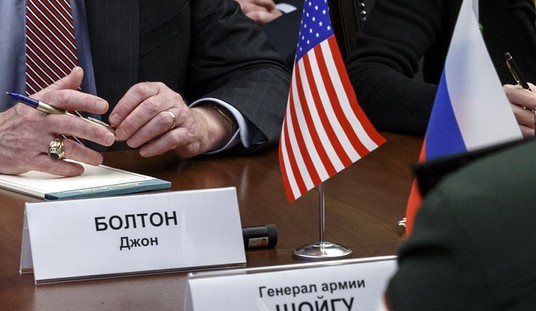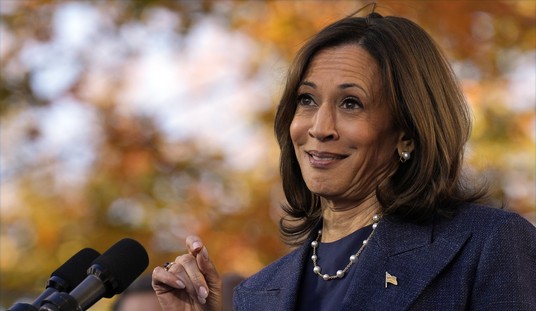To say that Thursday’s Senate Judiciary Committee hearing featuring the testimony of Professor Christine Blasey Ford and Judge Brett Kavanaugh was contentious is a monumental understatement. But regardless of whether or not you believe Ford’s accusations against Kavanaugh, the fact remains that she did not choose to jump in the spotlight. Her letter stating her objections to Kavanaugh’s nomination to the United States Supreme Court requested anonymity, and that request was violated when someone leaked the contents of her letter to the media. So far, the culprit or culprits remain unknown.
The Intercept, a New York City-based news website funded by Ebay founder Pierre Omidyar, was the first to break the news about the existence of Ford’s letter. That September 12th article noted that Ford originally sent her letter to Rep. Anna Eshoo, a Democrat who represents California’s 18th District, and Eshoo passed the letter on to Sen. Dianne Feinstein (D-CA).
Both Feinstein’s office and The Intercept have denied that Feinstein leaked the letter. According to The Intercept, other Democratic Senators on the Senate Judiciary Committee and their staff became aware of the letter, requesting to see it but were rebuffed.
After The Intercept article but before Ford’s identity was known, Feinstein released a statement noting that she had “strongly requested confidentiality, declined to come forward or press the matter further, and I have honored that decision.”
The staff twitter account for Sen. Orrin Hatch (R-UT), another member of the Senate Judiciary Committee, notes that the text of The Intercept’s article makes it “clear” that “staff for other Democrats on the committee” were responsible for the leak, and news articles published in other news outlets “made clear that Dr. Ford’s name, contact information, and existence of accusations had been leaked to the media from Democrat offices.”
Sen Feinstein did not leak the letter/ the existence of the letter to the intercept— staff for other Democrats on the committee did. These excerpts make that clear
They cared more about stopping Kavanaugh than protecting Dr. Ford’s request for privacyhttps://t.co/TTXI8b8MZo pic.twitter.com/jp0oXUgjro
— Senator Hatch Office (@senorrinhatch) September 29, 2018
Articles in Buzzfeed, the New York Times, and the New Yorker (published before Dr Ford told her story of her own accord to the Washington Post) made clear that Dr. Ford’s name, contact information, and existence of accusations had been leaked to the media from Democrat offices. pic.twitter.com/mQwwWowlFO
— Senator Hatch Office (@senorrinhatch) September 29, 2018
Ford also testified under oath that she had not released the letter herself or authorized anyone else to release it.
After the letter was leaked, Ford disclosed her identity as the author and told her story to the Washington Post. Supporters of Kavanaugh’s nomination have decried the timing of the leak, just days before the Judiciary Committee vote, as an unfair ambush attack on Kavanaugh’s character and partisan attempt to delay the vote by any means necessary.
Let’s go back to what we knew before Ford came forward and identified herself: Ford originally sent her letter to Eshoo, who forwarded it to Feinstein. Other Democratic Senators on the Senate Judiciary Committee and their staff were aware of the existence of the letter but had not seen it, although there did seem to be some awareness of the general contents.
From The Intercept: “Different sources provided different accounts of the contents of the letter, and some of the sources said they themselves had heard different versions, but the one consistent theme was that it describes an incident involving Kavanaugh and a woman while they were in high school.”
Other than Feinstein, the Democratic members of the Senate Judiciary Committee are Sen. Patrick Leahy (D-VT), Sen. Dick Durbin (D-IL), Sen. Sheldon Whitehouse (D-RI), Sen. Amy Klobuchar (D-MN), Sen. Chris Coons (D-DE), Sen. Richard Blumenthal (D-CT), Sen. Mazie Hirono (D-HI), Sen. Cory Booker (D-NJ), and Sen. Kamala Harris (D-CA).
Based on the information we have, the leak of Ford’s letter was most likely committed by Eshoo, one of the Democrats on the Senate Judiciary Committee, or someone in one of their offices.
This leak was an egregious violation of Ford’s privacy. There is no confusion on this matter: she contacted her elected congressional representative and clearly requested confidentiality.
As has been discussed repeatedly on this site and elsewhere in the media, the assault Ford alleges happened over three decades ago, she has been unable to provide details regarding the specific date and place, and so far there have been no other witnesses who can collaborate her story or any physical evidence. Moreover, the assault alleged was a state crime, and one for which Maryland imposes no statute of limitations. Beyond the propriety of FBI involvement, the fact remains that it is extraordinarily unlikely that their investigation will yield any new information or evidence whatsoever, never mind anything sufficient to clearly establish Kavanugh’s guilt or innocence.
Nonetheless, the full Senate vote has been delayed a week to allow an additional FBI investigation into Ford’s accusations. This delay and additional investigation has been praised by Ford’s supporters as necessary due diligence and transparency before Kavanaugh is elevated to the nation’s highest court.
But what of the original leak of the letter? That happened mere weeks ago, and there is likely evidence: emails and phone records, for example, discussing Ford’s letter and its contents.
We also have a defined universe of potential suspects: Eshoo, Democrats on the Senate Judiciary Committee, and their staff.
So who leaked the letter? The American people deserve an answer. Until we know, the reality is that any of us who seek assistance from our congressional representatives have no reassurance that we will be protected if someone anticipates partisan political gain to be found from sacrificing our privacy.
The leak of a confidential document from a Congressional office is absolutely within the scope of what the FBI should investigate. They have the power to request documents, emails and phone records, and other relevant documents, and to question staffers and other potential witnesses.
Failure to protect confidential documents and maintain discretion is a serious breach of duty for a Congressional office. Numerous federal laws and regulations govern the handing of such documents, but beyond the law, what about the moral duty to protect a woman who says she suffered a sexual assault?
If a congressional staffer leaked Ford’s letter, that person should be fired immediately, and face criminal prosecution. If it was an actual member of Congress, that member should face impeachment.
Follow Sarah Rumpf on Twitter: @rumpfshaker.














Join the conversation as a VIP Member